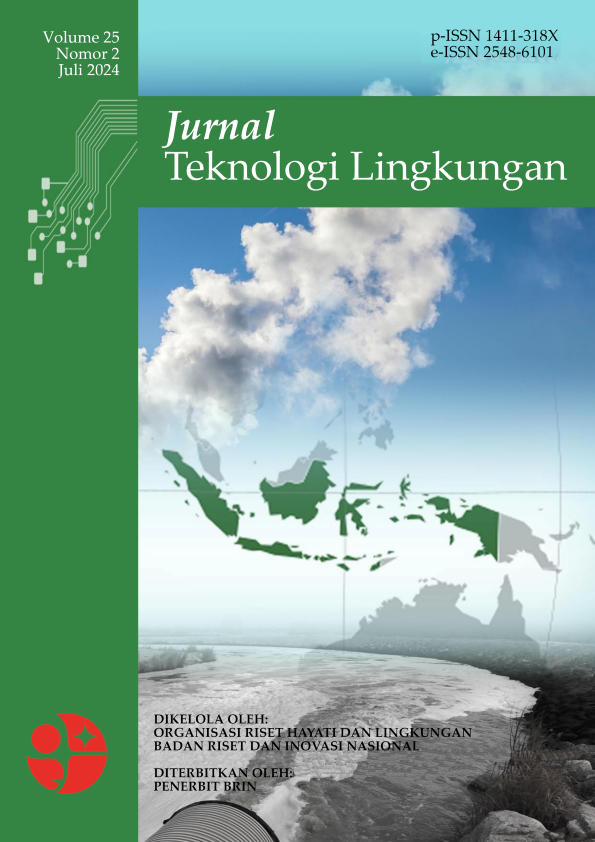Evaluasi Produksi Refuse-Derived Fuel (RDF) dari Sampah Perkotaan (Studi Kasus: RDF Plant di Kabupaten Cilacap)
Main Article Content
Abstract
Indonesia’s prevailing waste management paradigm, which still employs a collect-transport-dispose system, results in waste accumulation and adverse effects on health and the environment. In contrast, the cement sector’s necessity for renewable and environmentally benign energy is increasing. Refused-derived fuel (RDF) technology is one of the potential ways to solve both concerns. This study aimed to assess the viability of RDF manufacturing processes and products for the cement industry and to offer recommendations for a national standard. This research procedure included identifying waste composition and characteristics, observing RDF production, and evaluating RDF product quality, such as testing water content, ash content, and heating value. The results demonstrated that the Cilacap RDF Plant successfully produced RDF from municipal solid waste using the mechanical-biological treatment (MBT) method. The biodrying process could reduce waste’s moisture content from 55.44% to 23.63% and increase the heating value to approximately 15 MJ/kg. Nevertheless, the quality of RDF products must be enhanced to align with the biomass standards for the industry (SNI 8675: 2018). The Cilacap Plant RDF products were feasible for application in the cement industry, with further product quality improvement and production process optimization. The findings could be a reference for developing national standards in manufacturing RDF as an alternative fuel in the cement industry.
Abstrak
Pengelolaan sampah di Indonesia masih menggunakan sistem kumpul-angkut-buang, menyebabkan penumpukan sampah dan dampak negatif terhadap kesehatan dan lingkungan. Di sisi lain, kebutuhan energi terbarukan dan ramah lingkungan di sektor industri semen terus meningkat. Teknologi bahan bakar jumputan padat atau refuse-derived fuel (RDF) dianggap mampu menyelesaikan kedua permasalahan tersebut. Penelitian ini bertujuan untuk mengevaluasi kelayakan proses pembuatan dan produk RDF untuk industri semen serta memberikan rekomendasi untuk pembuatan standar nasional. Prosedur penelitian ini mencakup identifikasi komposisi dan karakteristik sampah, observasi tahapan proses produksi RDF, dan evaluasi kualitas produk RDF seperti kadar air, kadar abu, dan nilai kalor. Hasil penelitian menunjukkan bahwa RDF Plant Cilacap berhasil memproduksi RDF dari sampah kota menggunakan metode mechanical-biological treatment (MBT). Proses biodrying mampu menurunkan kadar air sampah dari 55,44% menjadi 23,63% dan meningkatkan nilai kalor menjadi sekitar 15 MJ/kg. Namun, kualitas produk RDF masih perlu ditingkatkan untuk memenuhi standar biomassa untuk industri (SNI 8675:2018). Produk RDF Plant Cilacap dinilai cukup layak untuk industri semen, dengan beberapa rekomendasi untuk peningkatan kualitas produk dan optimalisasi proses produksi. Temuan ini diharapkan dapat menjadi rujukan dalam pembuatan standar nasional dalam produksi RDF sebagai bahan bakar alternatif di industri semen.
Article Details

This work is licensed under a Creative Commons Attribution-ShareAlike 4.0 International License.

